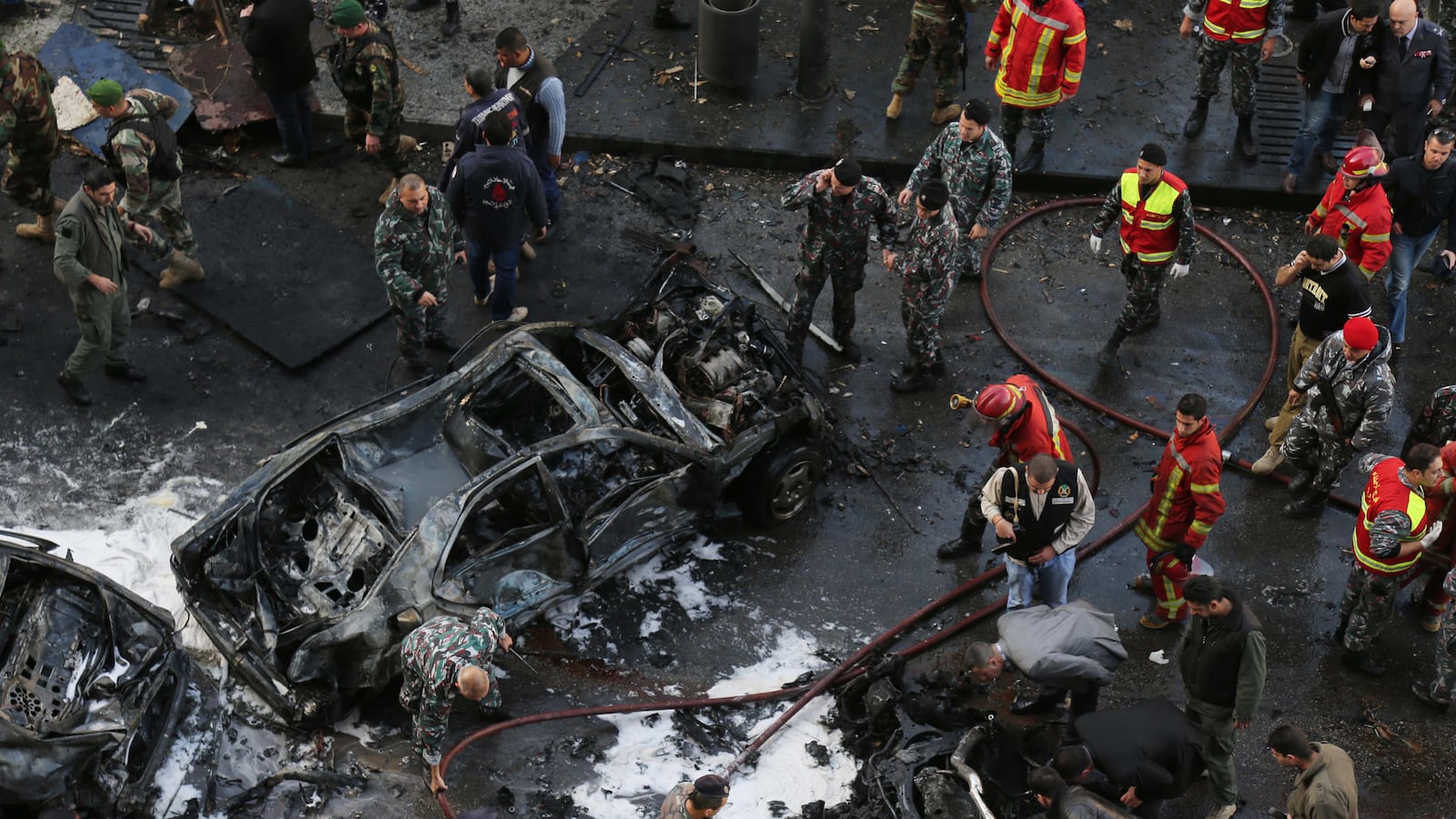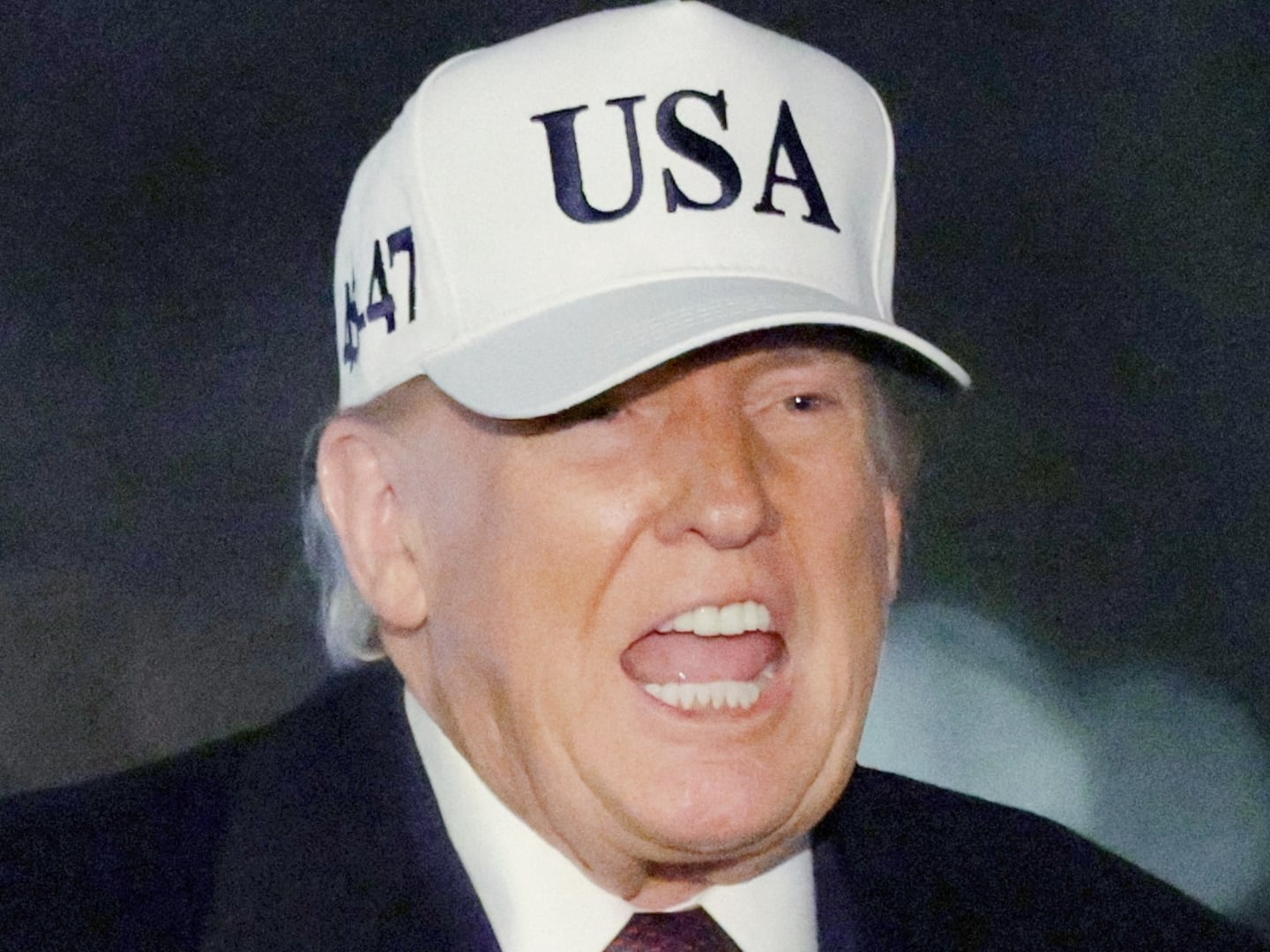The killing of a top Lebanese Sunni politician and critic of Syrian President Bashar al-Assad in a powerful car blast yesterday in central Beirut—an attack that also claimed the lives of five others—underscores how deeply Lebanon has been drawn into the conflict in neighboring Syria.

The assassination of onetime finance minister and ambassador Mohammad Chatah, an adviser to former Lebanese Prime Minister Saad Hariri and an unrelenting critic of Hezbollah, the radical Shia movement and Assad ally, is already being linked by his political allies to the Syrian regime. Just an hour before his slaying, in a blast that struck near the country’s parliament and major government offices, Chatah had tweeted one of his regular denunciations of Hezbollah.
Fouad Siniora, a former Lebanese Prime Minister and a member of the March 14 group, the same pro-Western political alliance to which Chatah belonged, pointed the finger of blame at Assad. “The criminal is the same, he who is thirsty for the blood of Syrians is the same one spilling Lebanese blood… from Beirut to Tripoli,” Siniora said. “In all of Lebanon, the criminal is the same, he and his Lebanese allies, as in Daraa, Aleppo, Damascus and all of Syria.”
The Syrian government denied any involvement in the blast, dubbing the bombing a “heinous crime.” “These wrong and arbitrary accusations are made in a context of political hatred,” said Syria’s Information Minister Omran al-Zohbi, in remarks published by state news agency SANA.
Hezbollah also dismissed the charge, describing the attack as one aimed at disrupting “national unity.”
Whoever was responsible for the bombing had an acute appreciation of the symbolism of the attack and how it would stoke sectarian tensions in Lebanon. The slaying took place just yards from where Lebanese leader Rafik Hariri, Saad’s father, was killed in a 2005 car bomb—an assassination that nearly plunged Lebanon into a full-scale civil war.
It also occurred just three weeks before the long-delayed start of a trial of a handful of Hezbollah suspects indicted for Rafik Hariri’s assassination. The trial is scheduled to open in The Hague in January. Hezbollah has always denied involvement in Hariri’s death.
The assassination of Chatah, who served as Lebanon’s ambassador to the United States from 1997 to 2000, marks the latest in a spate of grisly bombingsand firefights that have exacerbated divisions in the country. Tensions have been fuelled by the civil war next door in Syria.
As well as skirmishes and bombings in the northern city of Tripoli, Beirut has been hit by several deadly attacks, including twin suicide blasts in November that targeted the Iranian embassy, and car bombings in the Hezbollah stronghold of Dahiyeh, a southern suburb of the Lebanese capital.The Iranian embassy attack and the bombings Hezbollah suburbs are seen widely as the work of Sunni jihadists.
Friday’s bombing is most reminiscent of the blast last year that killed Lebanese security boss Brigadier General Wissan al-Hassan, a spymaster who was no friend of Syrian leader Assad. Two months before he was killed in a car bomb detonated by remote control, Hassan, a Sunni and close friend of Rafik Hariri, arrested a pro-Syrian Lebanese politician, accusing him of planning a Syrian-sponsored bombing campaign in Lebanon. Hassan also led the investigation that implicated Hezbollah and Damascus in the 2005 bombing that killed Rafik Hariri.
The blast that killed Chatah was also large and triggered remotely, according to Lebanese security sources. The blast, which wounded more than 70 others, scorched nearby parked cars, frayed trees and shattered the windows of shops and apartments in Beirut’s swanky downtown, an area of plush hotels, expensive residences and luxury clothing boutiques. The blast occurred at 9:40 in the morning, just hundreds of yards from the parliament building, and resonated across the city. The pall of black smoke from the bombing could be seen from miles off.
The Syrian civil war that’s inflamed sectarian Muslim divisions across the Middle East has done special harm to Lebanon, bringing to the fore radical Sunni clerics baying for the blood of apostate Shiites and propelling Hezbollah into an intervention in Syria on behalf of its patron, Assad. Lebanese Sunnis are also taking part in the conflict, dispatching fighters and guns to Syrian rebels.
For months now, Lebanon’s deeply divided politicians have been unable to agree on the formation of a government and the country has been led by a weak caretaker administration.
Today’s blast has prompted yet more fears that Lebanon risks being dragged back into a civil war of its own. The last one stretched for 15 years, left 120,000 dead, and wounded one in four Lebanese. Since then a fragile balance has been observed, giving all of Lebanon’s main religious sects a share in government power. And until the Syria’s sectarian conflict erupted there was a relative, shaky peace.
Even before Chatah’s assassination, few Lebanese were confident that another escape from sectarian violence could be pulled off. In the past few months, as the drums of conflict have beaten, the hotels, bars and restaurants of the Lebanese capital have become emptier. Tourism has plummeted. And in the nightspots favored by the well-heeled, the Lebanese rich readily admit their fears, explaining how they are shifting their money overseas and preparing havens overseas.






